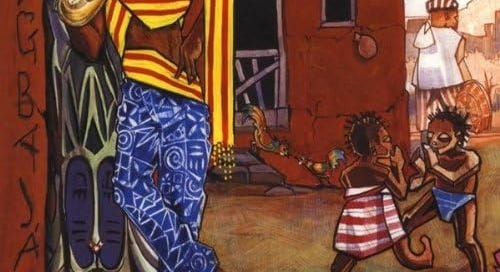I woke up this morning craving music.
This is not new. I listen to new music during the week and save the weekend for the older stuff: the highlifes, juju, apala, and afrobeat.
But today, I wanted Lágbájá.
If you grew up in Lagos in the 90s, you must remember listening to Lágbájá on the radio.
As a marketing concept, Lágbájá was ahead of its time. Masquerades and masks were not new. Those steeped in Yoruba culture knew their place in the pantheon. But Lágbájá’s spin was modern: his regalia was in fancy tropical colours, his mask frilly around the head like a tree with adventitious branches, and his unmistakable love for sandals.
The 90s was a difficult time to run social commentary. It was the era of hitmen, assassins, kangaroo tribunals and judicial and extrajudicial murders. This may have influenced Lágbájá’s clever spin on anonymity. Fela was ill and plagued with frivolous government-sponsored drug-related charges. Lagos needed an iconoclastic hero, a bougie successor to Fela, who had…
Keep reading with a 7-day free trial
Subscribe to London Listening Sessions to keep reading this post and get 7 days of free access to the full post archives.



